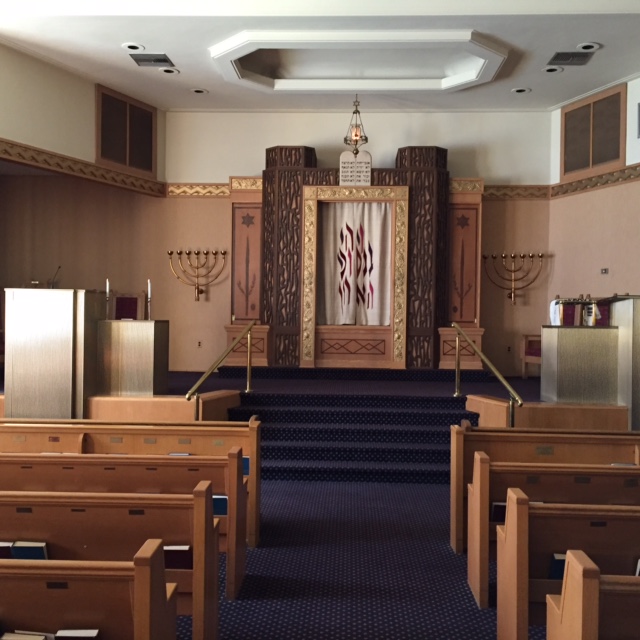 Jews have called Johnstown home since the 1850s, but we didn’t make it official until the first Jewish burial ground at Grandview Cemetery was established in 1888. Eastern European Jews flocked to the city from 1880 to 1920, during the great wave of immigration. At one time, there were some 1,800 Jews in the city.
Jews have called Johnstown home since the 1850s, but we didn’t make it official until the first Jewish burial ground at Grandview Cemetery was established in 1888. Eastern European Jews flocked to the city from 1880 to 1920, during the great wave of immigration. At one time, there were some 1,800 Jews in the city.
The 1889 flood claimed 24 Johnstown Jews, and relief efforts from across the country poured in to assist the local Jewish community. The boomtown that was Johnstown post-flood brought in many new immigrant families.
Unlike most immigrants from the time period, Jews were fleeing religious oppression and came with their families intending to stay permanently. Specific Johnstown neighborhoods were heavily populated by Jewish residents, most notably the Millvale section of the city across from the train station. Many Jews became merchants to the community of workers around them, mirroring a relationship established in the Old Country.
Artifacts and photographs of Johnstown's synagogues, from Rodef Sholom, the town's first synagogue, to Beth Sholom can be found within the Johnstown Jewish Museum, housed at the Beth Sholom.
Much has been written about Jewish Johnstown. With thanks to early documentation by Saul Spiegel to the work done by Rabbi Leonard Winograd in his doctoral dissertation “The Horse Died in Windber” to Ewa Morawska’s outstanding monograph entitled “Insecure Prosperity-Small Town  Jews in Industrial America”, Johnstown’s Jewish community has long been a study of history and communal scholars.
Jews in Industrial America”, Johnstown’s Jewish community has long been a study of history and communal scholars.
A year-long exhibit was held in 2012-3 commemorating 125 years of Jewish Johnstown at the Discovery Center. Developed in conjunction with Johnstown Area Heritage Association, the interpretive panels from JAHA’s exhibit hang in the auditorium at Beth Sholom, and compliment the Bloom Archives and Jewish Museum, the Holocaust Remembrance Room and the Israel Heritage Room to form extensive interpretation of this important community. Additional materials are housed within JAHA and Rauh Jewish Archives of the Heinz History Center in Pittsburgh.
Themes of the local exhibits include:
- Basic principles of the Jewish tradition - An explanation of some of the most important Jewish traditions, from holidays to family life.
- A family's journey from Europe to Johnstown, and Israel - Examples of Johnstown Jewish families, from the time they left the Old Country to the present day.
- Defending two homelands - Stories told of how the Johnstown Jewish community served during the two World Wars, Holocaust survival, and significant and noted support for the state of human services in Israel.
Visitors are welcome to stop into Beth Sholom to see the Jewish Museum.
Cambria Memory Project:
Beth Sholom Congregation is working with the Cambria Memory Project to make available and digitalize many of our records. To view additional history of Beth Sholom please follow the link listed below:
https://digitalarchives.powerlibrary.org/papd/islandora/object/papd%3Aacacc-bss
Rauh Jewish History Program & Archives at the John Heinz History Center:
The Rauh Jewish History Program & Archives was founded in 1988 to collect, preserve, and make accessible the documentary history of Jews and Jewish communities of Western Pennsylvania.
The program is supported by Rauh Jewish History Program & Archives Endowment Fund of the Foundation of the Jewish Federation of Greater Pittsburgh, the Senator John Heinz History Center, and many generous donors.
The collections of the Rauh Jewish History Program & Archives document the lives of individuals and families and the histories of congregations, organizations, institutions, and businesses. Correspondence, diaries, memoirs, ledgers, minutes, scrapbooks, ephemera, audio tapes, photographs, and moving images are housed in archival containers and stored in a monitored, secure, and climate-controlled environment. Related artifacts are transferred to the History Center’s museum collections. To view this collection please follow the link listed below:
https://www.heinzhistorycenter.org/research/rauh-jewish-history-program-archives/

